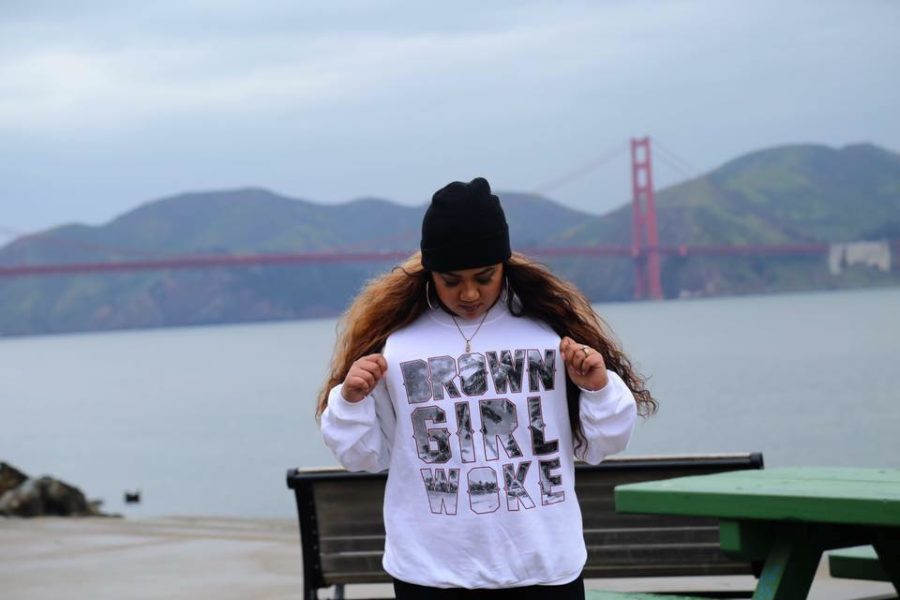Recently, a friend of mine moved out from home. For context, she’s British Bangladeshi, from a somewhat traditional and religious household, wherein women are made to live under the tyrant rule of the men in their lives and serve said men. This act culminated in tears, emotional blackmail and endless guilt trips. I met this same reaction a few months ago when I left for, like, two weeks.
Whilst, of course, two weeks doesn’t really count as moving out, it was still a decision in which I packed my bags, all of my important documents and disappeared without saying anything. The only way many of us brown girls can really actually take our autonomy in our own hands. I told my parents my decision on the phone. This same choice was echoed by my friend who moved out. It may be a cruel and even a bitchy way to leave things, but leaving without so much as a proper goodbye, and then breaking the news over the phone where we have the power to hang up, is honestly the best, and easiest (maybe even the safest) way to take that leap into independence.
The thing about independence, when it varies across cultures and families, is that it is so hard to come back and grab hold of it, when so many of us (see: South Asian women) lag behind our male counterparts whether they’re our fathers or brothers or husbands. We were raised with the belief of being less than; of putting the family first, before our very own happiness or our own lives. The first act of gaining a semblance of independence comes with more than just moving out of our childhood home/s—it starts with choosing ourselves, and this in itself is an act of defiance, of standing up tall and proud and strong.
Being a woman from a South Asian background meant bowing down and conforming to the violence that comes from the normative structure in patriarchal societies, as studied by Dobash and Dobash (1978, 1979 and 1981). Though those studies were focused on marital violence, it is still a normalcy in parental-child relationships within the Asian community and Diaspora, given that most parents tightly hold onto their belief system, either passed down from their own parents or brought over with their migration from their own homeland. Personally, I am a first generation British Citizen and my parents are decades older than most, given that they had me eighteen years after their marriage. This enormous age and generational gap between us consists of their mindset being held by traditions and customs still upheld in Bangladesh. It also resulted in them having no parents to turn to when it came to raising me as I grew older, since, by the time I was born, all of my cousins were already in the later years of primary school, secondary school, university or just getting married. To give you a little more context: only four of my (male) cousins are unmarried on my mother’s side, and the rest have spouses and children, well into their thirties or forties, close to their fifties.
Moving out should be an exciting, happy event, but it is overshadowed by what is termed as ‘Brown Girl Guilt’, the suffocating embrace of feeling as if you’re doing something wrong by going against your family’s wishes, wants or desires. This guilt eclipses every other emotion, taking what should be exciting and twisting it into something struck with choking remorse, fear of breaking hearts that shouldn’t be breaking for crossing one of the most normal and basic milestones of life and marred by blame. Blame from yourself, blame from your family, the culture and even complete strangers. Even with everything now I am personally trekking through, dragging my feet as if through slush, I am feeling this inevitable guilt weighing me down, residing on my chest like a boulder of rocks I can’t move away from.
Leaving home is only the first part of gaining independence as a brown woman, because with it comes freedom: the freedom to truly, finally be yourself, away from the judgemental and toxic eyes constantly on you and whispers passing from person to person. The freedom to dress how you want, eat what you want, come home where you want. At home, some of us are forced to cover up, shield our body from men’s eyes, when really they shouldn’t be looking anyway—shorts or t-shirts are never an invitation for anyone to look. Freedom is wrangled from our hands at birth, taken so far from us until it is no longer visible. We spend our entire lives running towards it, sometimes thinking that marriage will be a form of independence and freedom, an escape, anything to leave the home of tradition and culture. But independence is never independence if we seek it from another person—it’s something to find on our own, grab between our hands and hold it close and never let go. It’s a form of power, strength and courage.
This culture will do everything it can to rip our autonomy from us, controlling our dress code to the way we look, eat and behave. Escaping it comes with guilt we shouldn’t have to feel, but it’s still ingrained in us like a parasite sucking on our blood, shattering our ribs and turning it into a gilded cage of brown girl guilt, our hearts thrumming against it like something trapped. Leaving is only the first step toward independence, being free of the guilt is the second, and that can take a lifetime.
The Brown Girl Guide to moving out is remaining strong in your decision and fighting everything to get your freedom, when it goes against everything the culture stands for. The patriarchy won’t crumble until we learn our worth and wield it like armour against those that try to minimise it.
Sumaiya Ahmed
image via Shutterstock images







Leave a Comment